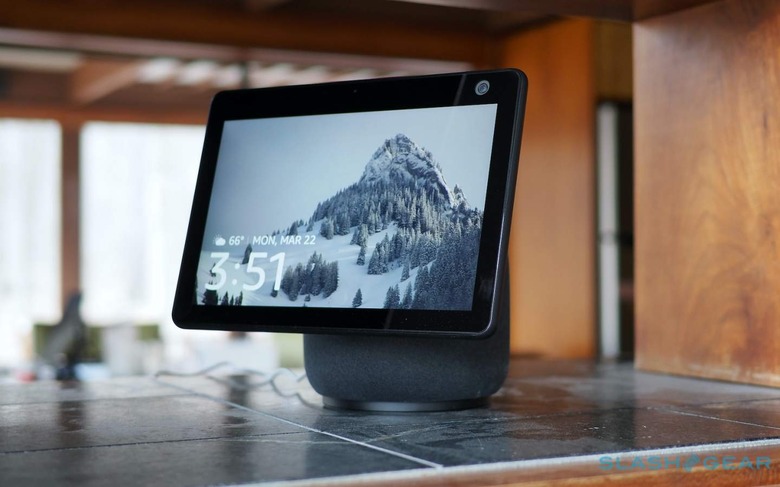Here's what Amazon's big Alexa event could bring - with some surprises
Amazon's big Alexa, Echo, and Ring event may not be until next week, but some of the surprises in store – including a brand new form factor for the company's smart speaker – may already have been leaked. With previous years to guide us, Tuesday's event on September 28 is likely to be one rapid-fire announcement after the other, spanning everything from the smart home, to security, to automotive tech.
There's also space for some oddities. Previous years, for instance, have included a flying Ring camera, with the drone promising to patrol your house in ways a fixed security camera couldn't. Not all of Amazon's announcements actually make it to the retailer's virtual shelves, however: the Ring drone is still conspicuous by its absence.
For 2021's event, however, we're expecting some other new form factors. One significant one could be an Echo smart display intended for wall mounting. The 15-inch screen, Bloomberg reports, is internally codenamed Hoya, and would act as an interface for the owner's smart home.
That's something we've seen previous Echo Show smart displays do, but Hoya's bigger panel could allow for more information to show at once. It could also be used as a kitchen video screen, such as to show Netflix or Amazon Prime Video content, or display video recipes. A widget-based UI could be customized to fit with a family's particular needs, showing things like calendar schedules and photos alongside smart home device control for lighting and more.

Elsewhere in the home, Amazon is also reportedly preparing its first sound bar for TVs. The current work-in-progress, it's said, would distinguish itself from rivals – including many with Alexa support built-in – by also adding a camera. That would allow for video calls, much in the same way that Echo Show smart displays do now, only using the big-screen TV as the display.
What's unlikely to change in Echo speakers, though, is the rest of the current range. That's Bloomberg's prediction, at least, envisioning a refresh in 2022. It's potentially part of Amazon's work to shift its Echo hardware onto chips of its own design, with an in-house team looking to follow in Apple and Google's path and make better use of custom silicon. When, though, that might be ready for consumer products remains to be seen, though Amazon does have some custom coprocessors for on-device Alexa voice processing already.
Meanwhile, in the car, the Amazon Echo Auto is apparently getting a refresh. Codenamed Marion, the second-generation device would – like its predecessor, announced in 2018 – connect to the car for power and through its audio system. However it would also link with a smartphone for media streaming, and for a data connection for Alexa voice control. Expected to be redesigned, the new Echo Auto 2nd Gen could also include a wireless charging pad for the smartphone, too.
Maybe the most outlandish new device is one we've heard about Amazon tinkering with before: an Alexa-powered robot. Whispers of that have been circulating since 2018 or even earlier, though we're yet to see any public discussion of the device. That could be because the robot, internally codenamed Vesta, has apparently not been universally popular as a project within Amazon, with some – including former CEO Jeff Bezos – said to have questioned how useful or viable a smart display that follows people around the home might be.
Prototypes so far have included 7-inch and 10-inch displays, with computer vision to map out the home and track a user around. The robot could deliver Alexa results and updates on things like calendar appointments; however, since it lacked any arms or other ways to interact physically with the home, it couldn't be relied upon for chores in the way that, say, a Roomba might take on the vacuuming.
Whether the robot ever launches or not is far from clear, and indeed Amazon has no shortage of announced products that don't make it to retail. One possibility is that the device could be launched via Amazon's Build It program, which it began in early 2021. That allows customers to back potential "Day 1 Editions" products with preorders, with the proviso that the product only actually goes into production if sufficient people agree to purchase it.
